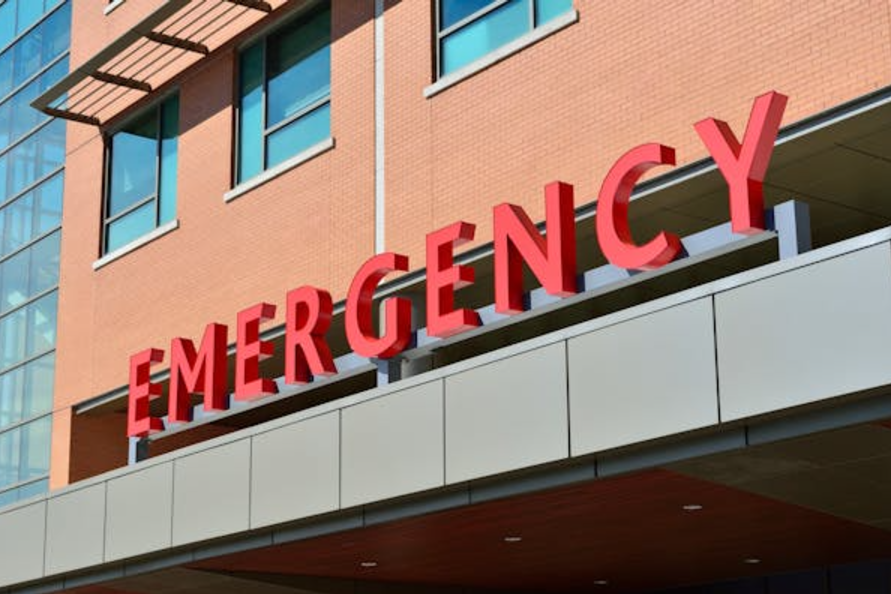By their very nature, emergencies often come without warning and tend to leave people financially and emotionally strained. It may be a sudden hospitalization, an accident, or surgery that one had not expected. Having a robust plan to manage the cost makes all the difference. Since the need for medical coverage is always witnessed, there has been a growing demand for innovative solutions to this problem. Medical cost sharing plans indeed break the monotony of traditional health insurance. Understanding how such plans operate, and having proactive measures towards handling emergencies with them, minimizes anxiety and achieves positive results.
How Medical Cost Sharing Works in Emergency Situations?
The founders of the medical cost sharing programs primarily believed in the community concept. Within the program, there are identifiable costs for certain people. Such programs are most appropriate for short-term needs. They are both practical and cheap.
Let’s take a look at some of these features:
- The Community Contribution Model: Instead of paying an insurer and purchasing healthcare, the members pay a share each month to help them help each other.
- Initial Unshareable Amount (IUA): A member is supposed to pay an ordinary dollar amount of their medical bills each time before the members come to the bills sharing stage.
- Provider Flexibility: Most plans allow patients to choose their preferred physicians, so that in emergencies, members will receive quality care.
Steps to Prepare for Emergencies with Cost-Sharing Plans
To utilize medical cost-sharing programs correctly, preparation is essential. Therefore, here is a step-by-step guide on preparation for emergencies.
- 1. Understand the rules of the plan
First of all, start by knowing the specifics of your cost-sharing program. Every plan has specific rules on what constitutes a shareable expense, particularly in cases of emergencies. For instance:
Establish that ER visits, inpatient stays, and surgeries are covered.
Look up the caps and restrictions established by your program for such costs as those related to pre-existing conditions or treatments received for non-emergency procedures.
- 2. Understand Your IUA Obligation
The IUA is what you pay out of pocket until shared funds apply. This amount of predictable financial responsibility allows you to plan better for emergencies.
Determine your IUA for a singular medical occurrence.
When your program does have annual caps on multiple IUAs, take that into your emergency preparedness planning.
3. Have Your Required Information Available in Emergency Situations
When emergencies arise, having ready access to all your information regarding medical cost-sharing will help speed through the process.
Keep both a physical and a digital copy of your membership information, such as ID numbers, plus contact information for member services. Make an emergency folder with such things as medical records and a list of preferred providers.
- 4. Identify Preferred Providers
Knowing where to go in an emergency saves time and ensures compliance with your program’s policies.
Investigate local hospitals and clinics that accept your cost-sharing plan.
Confirm whether a prior payment is expected and what the reimbursement is like.
- 5. Establish an Emergency Savings Account
Cost-sharing plans do minimize high medical bills, but having a buffer for the IUA or non-eligible charges is needed.
Save a portion of your cash solely for emergency savings purposes.
Continuously save that amount for any unforeseen healthcare expenditure.
- 6. Preventive Care as Least Risk Strategy
Preventive care is sometimes said to be the best approach against medical emergencies. Virtually all cost-sharing schemes encourage wellness and preventive care services.
Utilize check-ups, screening and wellness programs to maintain good health.
Make lifestyle choices being balanced in diet, having consistent exercise, and handling stress toxicity, so that the chances of emergencies are low.
Medical Cost Sharing in case of Emergencies: Benefits
There are several benefits of medical cost-sharing plans whenever emergencies develop:
- Reduce Financial Burden
The community approach protects members from wholly bearing the costs of major medical events and when an IUA is met. Further allowable costs are covered.
- Flexibility in Provider Choice
Unlike conventional insurance, many cost-sharing programs enable you to select the health provider that will suit your needs. Such freedom ensures that quality care is administered during such critical moments.
- Streamlined Support
The support and transparency are core values in the cost-sharing programs. The members are helped as fast as possible, and emergencies are handled immediately without complications of making an insurance claim.
Challenges and How to Overcome Them
Although cost-sharing plans have many advantages, there are challenges that need to be prepared for in advance.
- Delayed Reimbursements
Some plans require that members pay upfront and then get reimbursed.
Solution: Set aside money to pay for upfront while waiting for reimbursement.
- Knowing What Is Eligible:
Being unclear about what is a shareable expense can cause confusion.
Solution: Be sure to regularly view your program’s policies so you don’t miss any updates.
Conclusion
Savings for the IUA, pre-preparations of documents, advance payments, and usage of preventive treatment are good proactive measures for making medical emergencies manageable. If applied correctly, medical cost sharing plans can be such a great support in difficult times in our lives and a great flexible opportunity as well.
Disclaimer: MPB.Health memberships are a non-insurance solution designed to provide access to healthcare services. To determine if this aligns with your specific needs, we recommend consulting a certified expert advisor.


